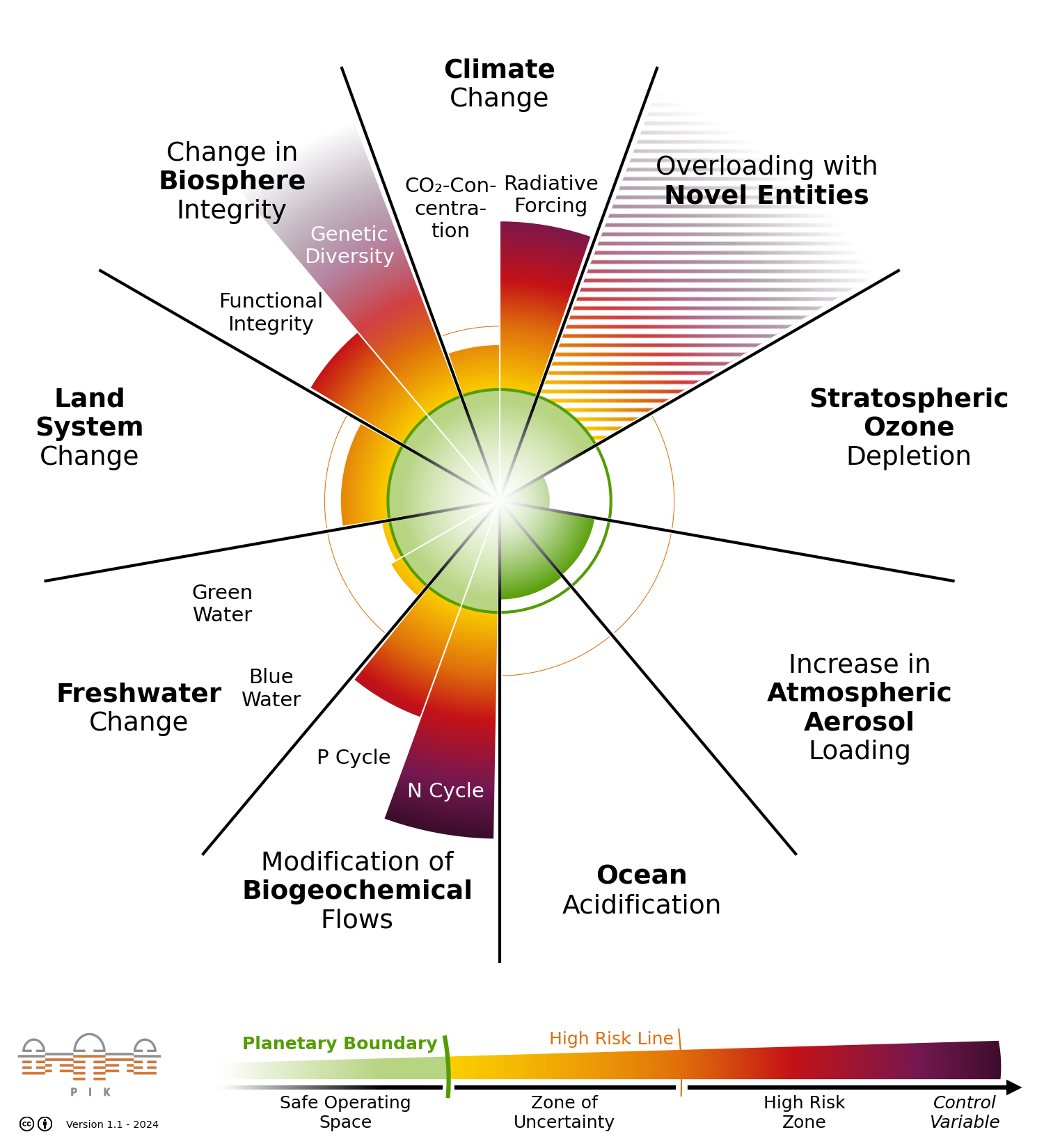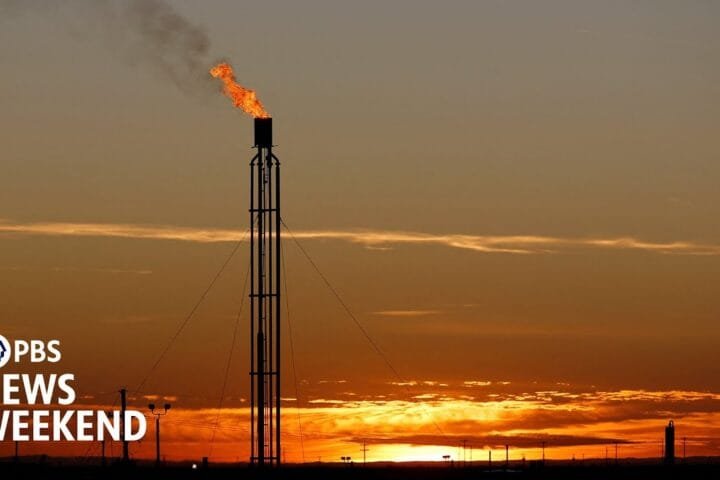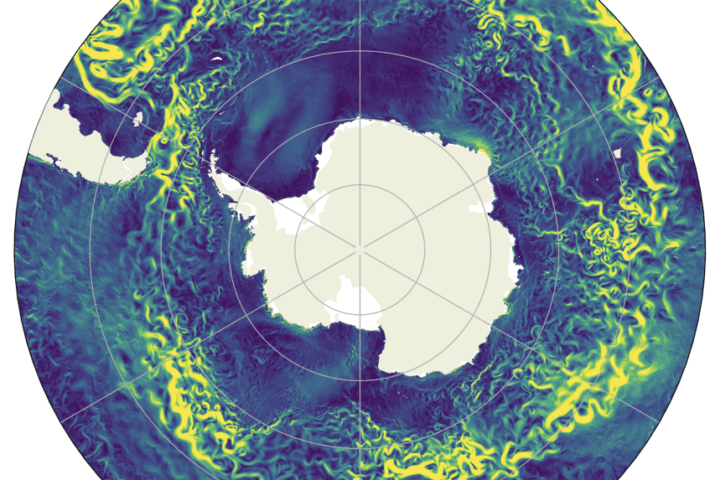The recent assessment of Earth system boundaries (ESB’s, Rockström et al, Nature, 2023) builds upon the Planetary Boundaries (PB) framework, and integrates other existing ideas like doughnut economics and the Sustainable Development Goals. The two key differences are that (a) the ESBs define a safe and just operating space, and (b) focus on scaling of quantitative boundaries from local to global level.
Quotes:
- Planetary Boundaries are defined for those nine biophysical systems and processes that regulate the functioning of life support systems on Earth and ultimately the stability and resilience of the Earth system. These nine have been scientifically scrutinised since their first introduction in 2009, suggesting that sustainable stewardship, within scientifically defined boundaries, gives humanity a good chance of safeguarding the Earth system in a Holocene-like state conducive for human development.
- The nine Planetary Boundaries include: climate change; overloading with novel entities; stratospheric ozone depletion; atmospheric aerosol loading; ocean acidification; interference in biogeochemical flows; freshwater change; land system change and change in biosphere integrity.
- Six of the nine Planetary Boundaries are currently transgressed. That is the case for climate change; overloading with novel entities; modification of biogeochemical flows (nitrogen and phosphorus cycles); freshwater change (blue and green water); land system change and change in biosphere integrity.
- Three of the Planetary Boundaries have been transgressed to such an extent that the high-risk zone has been reached (for climate change, modification of biogeochemical flows and change in biosphere integrity).
[...]
Read the full post at PIK Postdam.





